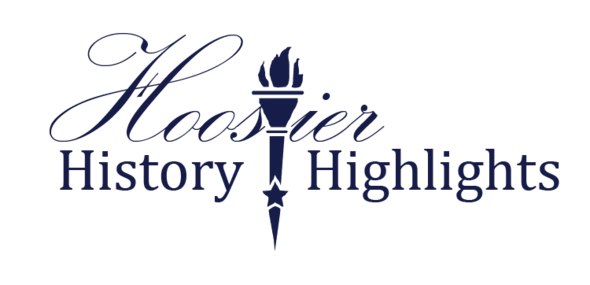 1863 – Indiana Governor Oliver P. Morton was in Washington, D.C., to visit soldiers of the Army of the Potomac. He made speeches to the Indiana regiments and was received with great enthusiasm. Morton had been working closely with President Abraham Lincoln in the state’s involvement in the Civil War. While in the city, Morton collected federal reimbursements of $90,000 which would help in the continued operation of state government.
1863 – Indiana Governor Oliver P. Morton was in Washington, D.C., to visit soldiers of the Army of the Potomac. He made speeches to the Indiana regiments and was received with great enthusiasm. Morton had been working closely with President Abraham Lincoln in the state’s involvement in the Civil War. While in the city, Morton collected federal reimbursements of $90,000 which would help in the continued operation of state government.
1904 – A furniture store in Argos advertised a Hoosier Cabinet on sale for $11. Indiana was home to a number of companies which manufactured free-standing kitchen cabinets which served several functions: Cupboard for plates, cups, and silverware, work table, storage bin, and flower sifter. The “Hoosier” brand models were made in New Castle.
1920 – The four Republican candidates for the upcoming Presidential election were making campaign tours through Indiana. Ohio Senator Warren G. Harding spoke at a rally in Richmond, along with California Senator Hiram Johnson. Ohio Governor Frank Lowden, also a candidate, spoke at a gathering at the Columbia Club in Indianapolis. The fourth candidate, Major General Leonard Wood, also toured Indiana on the eve of the primary election. Harding went on to win the nomination and the election.
1931 – Notre Dame football coach Knute Rockne and six others were killed in the crash of a private plane in Kansas. Over 300,000 mourners lined the streets of South Bend as the funeral procession moved to the Sacred Heart Church on the Notre Dame campus.
1948 – The Mercury Records “Caravan of Stars” performed at the Murat Theater in Indianapolis. At the top of the bill was Frankie Laine, along with Helen Hume, Flip Phillips, Buck Clayton, and the Mercury All-Star Orchestra. The show was emceed by city deejay Easy Gwynn. A local reviewer observed that the evening proved that recording artists “must be seen as well as heard to be fully appreciated.”
April 4, 1968 – Robert F. Kennedy, in Indianapolis on a campaign tour, announced the death of Dr. Martin Luther King, Jr., to a crowd at 17th and Broadway. His impassioned plea for peace on that night is considered one of the greatest addresses of the 20th Century.
